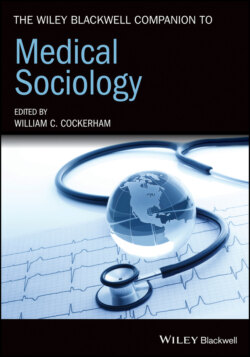Читать книгу The Wiley Blackwell Companion to Medical Sociology - Группа авторов - Страница 31
Michel Foucault
ОглавлениеFrench theorist Michel Foucault, who focused on the relationship between knowledge and power, provided social histories of the manner in which knowledge produced expertise that was used by professions and institutions, including medicine, to shape social behavior. Knowledge and power were depicted as being so closely connected that an extension of one meant a simultaneous expansion of the other. In fact, Foucault often used the term “knowledge/power” to express this unity (Turner 1995). The knowledge/power link is not only repressive, but also productive and enabling, as it is a decisive basis upon which people are allocated to positions in society. A major contribution of Foucault to medical sociology is his analysis of the social functions of the medical profession, including the use of medical knowledge as a means of social control and regulation, as he studied madness, clinics, and sexuality. Foucault (1973) found two distinct trends emerging in the history of medical practice: “medicine of the species” (the classification, diagnosis, and treatment of disease) and “medicine of social spaces” (the prevention of disease). The former defined the human body as an object of study subject to medical intervention and control, while the latter made the public’s health subject to medical and civil regulation. The surveillance of human sexuality by the state, church, and medicine subjected the most intimate bodily activities to institutional discourse and monitoring. Thus, bodies themselves came under the jurisdiction of experts on behalf of society.
Foucault’s approach to the study of the body also influenced the development of a new specialty, the sociology of the body, with Bryan Turner’s book The Body and Society (2008, originally published in 1984) the seminal work in this area. Theoretical developments concerning the sociological understanding of the control, use, and the phenomenological experience of the body, including emotions, have been most pronounced in Britain. One area of inquiry is directed toward understanding the dialectical relationship between the physical body and human subjectivity or the “lived” or phenomenological experience of both having and being in a body.
Foucault has his critics. Some suggest that Foucault’s perspective on knowledge/power does not take limits on power into account, nor explain relations between macro-level power structures other than dwell on their mechanisms for reproduction; moreover, there is a disregard of agency in poststructural concepts. Giddens (1987: 98), for example, noted that Foucault’s history tends to have no active subjects at all and concludes: “It is history with the agency removed.” And he (Giddens 1987: 98) goes on to say that the “individuals who appear in Foucault’s analyses seem impotent to determine their own destinies.” Yet Foucault’s knowledge/power equation, applied to the medical profession, remains a useful analysis of their role as “experts” in the social control of the body.
